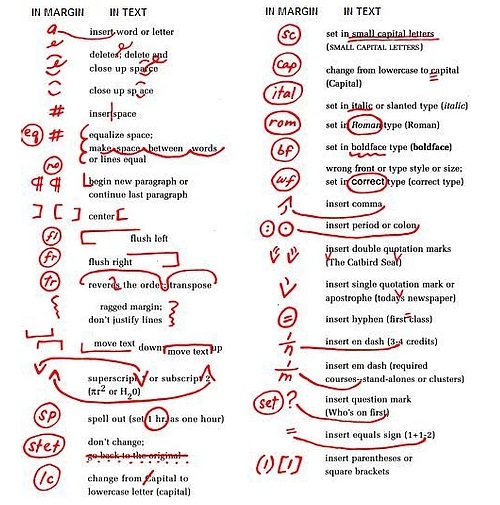I learnt to edit and proofread when I was working as a public servant. I had several jobs that involved something called correspondence tracking, which involves making sure letters and briefs a) meet deadlines and b) go out to the public free from spelling and grammar errors and typos. It also means checking details such as addresses, dates, names and titles. Government departments have style guides with preferred wording in correspondence, so I had to check that as well.
I discovered I was quite good at it, too.
You may wonder why you need a proofreader or an editor. Simply, a second set of eyes looking over your writing will improve it. If you’ve been working on something and know the content well, there is a tendency to skim over it and miss mistakes, like duplicate words or those pesky synonyms like their, there and they’re, or your and you’re. And your sentences might make sense to you but may seem wordy to the reader.
Programs like Word have inbuilt spellchecks and grammar checks, but they don’t pick up everything. However, if you don’t have a proofreader at the ready, the “editor” function on Word, found under Review on the menu, is handy. Not only will it check your spelling and grammar (make sure it is set to Australian English though), it makes suggestions about better use of language. It allows you to go quickly through your document, pick up mistakes and show you some of your writing habits, for example, words you (over)use. My own personal bugbear is the overuse of “appropriate”. I’ll tell you now that if “appropriate” is in your document, I will almost certainly change it. For example “refer to the appropriate department”, will be changed to “refer to the relevant or responsible department”.
The next step up would be a program like Grammarly which also checks for wordiness, sentence structure and even for plagiarism (!). Probably worth it if you do a lot of writing. However, it can be inflexible; if you are writing incorrectly on purpose or using informal language or colloquialisms it will be marked as an error. Also, if you have multiple versions of a document, programs like Grammarly may well mark version 2 of your report as perfect but this isn’t helpful if you’ve moved to version 4. In terms of version control, I get a sinking feeling when I’m asked to use track-changes. Use it if you must, but it can mark up a document so much that it makes it scary to read. Much better to number versions or put a date on them. Pro tip: if you want to quickly check you have the right version, check the first sentence and last sentence of each paragraph, rather than read all the way through.
So, electronic writing tools have their place, but it takes a human to pick up human mistakes.
A proofreader or editor will ensure your writing reads well, matches a template, or style guide requirements, and that the formatting is in order. Electronic writing tools won’t pick up on a sudden change of font size or an incorrect hyperlink. A proofreader can also check on consistency. For instance University of Queensland and Queensland University are both correct, but it would look unprofessional if you switched between both throughout a document.
Editing is concerned with what you are writing, rather than how you have written it. An editor can see whether the information is presented logically, concisely and cohesively; make sure you aren’t repeating yourself or going off on tangents; and check whether the writing is easily understood by its intended audience – technical language or in-house knowledge may make sense to you and your colleagues, but maybe lost on your reader.
Proofreading is the last part of preparing a document. You’ve put down your ideas, drafted and re-drafted and you hope it is ready to present to its intended audience. I guess everyone has experienced re-reading a sent document, only to find a typo halfway through. Mortifying. It does seem that proofreading ability seems to improve greatly after you’ve pressed send.
The other advantage is objectivity. If you’ve been working diligently on a piece and love every single sentence you’ve written, it can be hard to make cuts, even if you know it needs to be done. Easier to get someone else to do it.
If you would like to discuss my editing and proofreading services, feel free to contact me.

